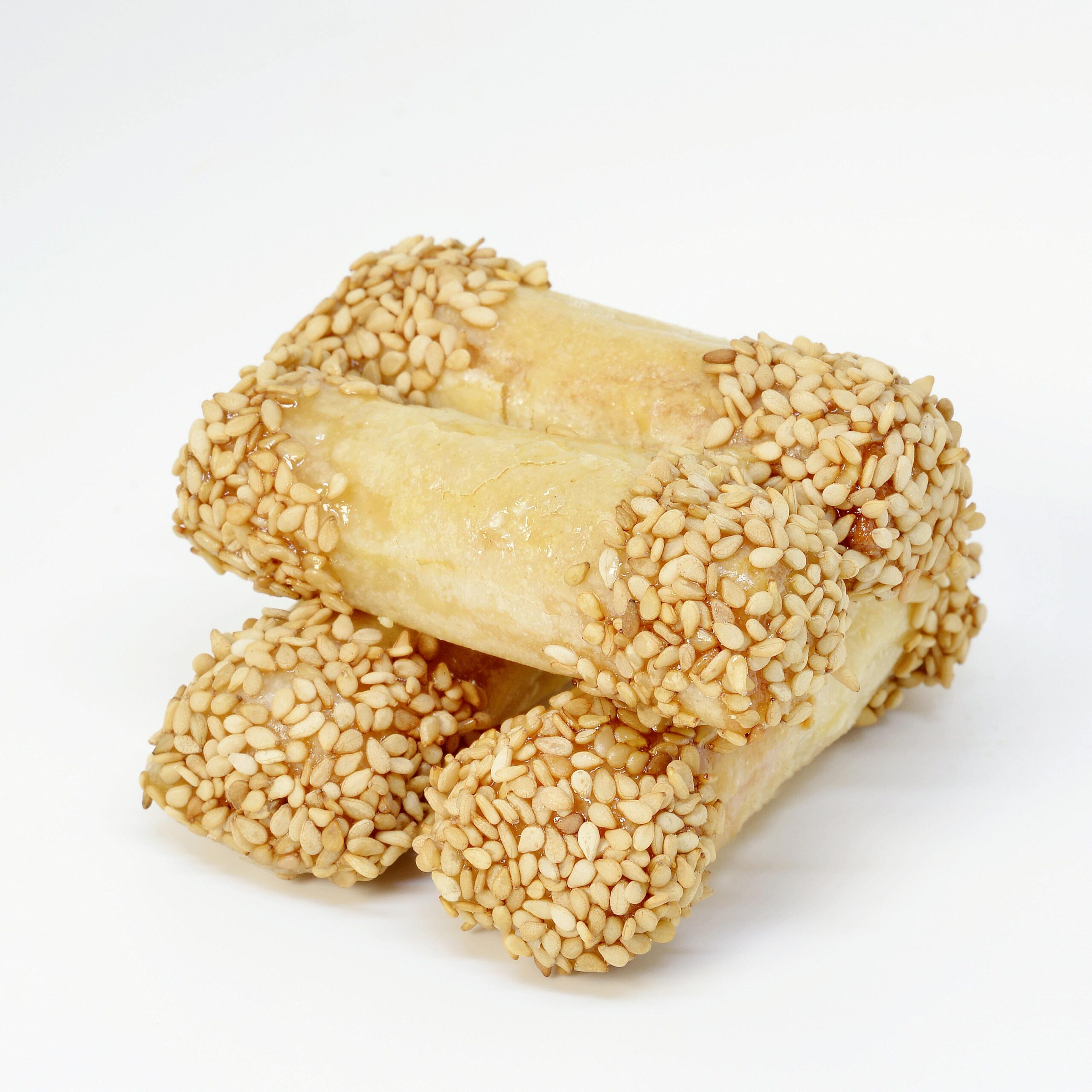Sesame. The Seed of Health

Sesame: Let’s learn about the benefits and nutrients
Sesame seeds are small, nutrient-dense seeds derived from the Sesamum indicum plant. They are known for their distinctive nutty flavor and are widely used in various cuisines. Here are the key benefits and nutrients of sesame seeds:
Nutritional Profile of Sesame Seeds:
Sesame seeds are packed with essential nutrients, including:
- Healthy Fats: Rich in polyunsaturated and monounsaturated fats, including omega-6 fatty acids, which are beneficial for heart health.
- Protein: A good source of plant-based protein, containing around 4-5 grams per tablespoon, making them an excellent addition to vegetarian and vegan diets.
- Vitamins: High in B vitamins (like thiamine, niacin, and vitamin B6) which are vital for metabolism and energy production.
- Minerals: Contain significant amounts of essential minerals such as calcium, magnesium, phosphorus, zinc, copper, iron, and manganese, which support bone health, immunity, and various bodily functions.
- Fiber: A good source of dietary fiber, which helps with digestion, reduces cholesterol levels, and promotes satiety.
- Antioxidants: Sesame seeds are rich in antioxidants, particularly sesamin and sesamolin, which help combat oxidative stress and may reduce the risk of chronic diseases.
Health Benefits of Sesame Seeds:
Supports Heart Health:
- The healthy fats, antioxidants, and fiber in sesame seeds can help lower LDL (bad) cholesterol and triglycerides, reducing the risk of heart disease.
Improves Bone Health:
- Rich in calcium, magnesium, phosphorus, and zinc, sesame seeds contribute to strong bones and can help prevent osteoporosis.
Regulates Blood Pressure:
- The magnesium content in sesame seeds has been shown to help reduce blood pressure, and sesamin may protect blood vessels from inflammatory damage.
Aids in Blood Sugar Control:
- Sesame seeds, especially when consumed in moderation, have a low glycemic index and can help regulate blood sugar levels. They may also enhance insulin sensitivity.
Boosts Immune Function:
- The high zinc content is critical for the proper function of the immune system, wound healing, and cellular repair.
Improves Skin and Hair Health:
- The oils in sesame seeds contain vitamin E and other antioxidants that promote healthy skin and hair by protecting against free radical damage.
May Aid in Hormonal Balance:
- Lignans in sesame seeds can have mild estrogenic effects, which might be beneficial for women experiencing menopausal symptoms.
Supports Digestive Health:
- The fiber in sesame seeds promotes regular bowel movements, aids digestion, and prevents constipation.
How to Incorporate Sesame Seeds in Your Diet:
- Raw or Roasted: Add them to salads, yogurt, or smoothies.
- Tahini: A paste made from ground sesame seeds, commonly used in hummus and salad dressings.
- Sesame Oil: A flavorful oil used for cooking or as a dressing.
- Baked Goods: Use them in bread, crackers, or as a topping for bagels and rolls.
Creative Ways to Use Sesame Seeds:
Sprinkle on Vegetables and Salads:
- Toast sesame seeds in a dry skillet over medium heat for a few minutes until they’re golden and fragrant. Sprinkle them over salads, roasted vegetables, or grain bowls to add a nutty flavor and crunchy texture.
Make Homemade Tahini:
- Blend sesame seeds with a little olive oil or water to create tahini, a creamy paste that’s a key ingredient in hummus. Tahini can also be used as a base for salad dressings, sauces, or drizzles on roasted vegetables.
Add to Baked Goods:
- Sesame seeds can be added to bread, muffins, crackers, and cookies for added flavor and nutrients. Black sesame seeds, in particular, add a unique visual appeal and taste.
Use as a Garnish:
- Sesame seeds are often used as a garnish for sushi, rice, or noodle dishes in many Asian cuisines. They add a final touch of flavor and enhance the presentation.
Mix into Smoothies or Yogurt:
- Blend a teaspoon of sesame seeds into your smoothie, or sprinkle them over yogurt or oatmeal for an easy nutrient boost.
Sesame Oil:
- Use sesame oil in cooking, especially in Asian dishes. It adds a rich, nutty flavor to stir-fries, marinades, and dressings.
Create Halva:
- Halva is a dense, sweet confection made from sesame seeds and honey or sugar. It’s popular in Middle Eastern and Mediterranean cuisines and can be flavored with chocolate, vanilla, or nuts.
- Blend sesame seeds with water, a sweetener (like dates or honey), and a pinch of salt to make homemade sesame seed milk, which is a great dairy-free alternative.
In-Depth Look at Specific Benefits:
Bone Health:
- How Sesame Seeds Help: Sesame seeds, particularly their hulls, are one of the richest plant-based sources of calcium. This is crucial for maintaining bone density and preventing conditions like osteoporosis, especially in older adults. Magnesium in sesame also supports bone health by improving bone density and strength.
- Best Ways to Consume: Regularly eating tahini, sesame-encrusted bread, or snacks can help maintain bone health, especially when paired with other calcium-rich foods.
- How Sesame Seeds Help: The lignans (like sesamin) in sesame seeds have antioxidant and anti-inflammatory properties that help lower cholesterol levels and improve cardiovascular health. They also contain phytosterols, which can reduce LDL (bad) cholesterol.
- Best Ways to Consume: Add sesame seeds or oil to your daily diet, especially in raw or lightly roasted form, to maximize these benefits.
Immune Support:
- How Sesame Seeds Help: High levels of zinc and selenium support the production of white blood cells, which are crucial for fighting infections. Zinc deficiency is often linked to impaired immune function.
- Best Ways to Consume: Use sesame seeds as a daily addition to meals or as a snack to help support your immune system.
Regulation of Blood Sugar Levels:
- How Sesame Seeds Help: With their low glycemic index, sesame seeds help prevent spikes in blood sugar levels. They also contain magnesium, which helps improve insulin sensitivity.
- Best Ways to Consume: Incorporate sesame seeds into meals that include carbohydrates to help balance blood sugar levels.
Anti-Inflammatory Benefits:
- How Sesame Seeds Help: Sesame seeds contain sesamol and sesamin, compounds with strong antioxidant and anti-inflammatory properties that can help reduce inflammation in the body. This is particularly beneficial for people with inflammatory conditions like arthritis.
- Best Ways to Consume: Regularly include sesame seeds in your diet, especially in anti-inflammatory recipes like turmeric-based dishes.
Sure! Here are some specific recipe ideas and ways to incorporate sesame seeds into your diet to maximize their benefits. I’ll include ideas that highlight both their flavor and nutritional advantages.
Recipe Ideas Using Sesame Seeds:
1. Sesame-Crusted Salmon:
- Ingredients:
- 2 salmon fillets
- 2 tablespoons sesame seeds (white or black)
- 1 tablespoon sesame oil
- Salt and pepper to taste
- 1 tablespoon soy sauce
- 1 teaspoon honey or maple syrup
- 1 teaspoon grated ginger (optional)
- Instructions:
- Preheat the oven to 375°F (190°C).
- Mix the soy sauce, honey, and ginger in a small bowl.
- Pat the salmon fillets dry and brush them with sesame oil.
- Season the fillets with salt and pepper and coat them with sesame seeds.
- Place the salmon on a baking sheet lined with parchment paper and bake for 12-15 minutes or until cooked through.
- Drizzle with the soy sauce mixture before serving.
- Benefits:
- This dish combines heart-healthy fats from both the salmon and sesame seeds, along with antioxidants and anti-inflammatory compounds. It’s a great source of omega-3 fatty acids, selenium, and magnesium, which support heart and bone health.
2. Tahini Dressing:
- Ingredients:
- 1/4 cup tahini
- 2 tablespoons lemon juice
- 1 tablespoon olive oil
- 1 clove garlic, minced
- 1-2 tablespoons water (to thin, as needed)
- Salt and pepper to taste
- 1 teaspoon maple syrup or honey (optional)
- Instructions:
- In a small bowl, whisk together tahini, lemon juice, olive oil, and minced garlic.
- Slowly add water until the dressing reaches your desired consistency.
- Season with salt, pepper, and a touch of sweetener if desired.
- Drizzle over salads, roasted vegetables, or use as a dip for raw veggies.
- Benefits:
- This dressing provides a creamy texture without dairy and is rich in calcium, healthy fats, and antioxidants, promoting bone health and supporting skin health.
3. Sesame Seed Granola:
- Ingredients:
- 2 cups rolled oats
- 1/2 cup sesame seeds
- 1/2 cup chopped nuts (like almonds or walnuts)
- 1/4 cup honey or maple syrup
- 1/4 cup coconut oil, melted
- 1/2 teaspoon cinnamon
- Pinch of salt
- Instructions:
- Preheat the oven to 325°F (165°C).
- In a large bowl, combine oats, sesame seeds, nuts, cinnamon, and salt.
- Add honey or maple syrup and melted coconut oil, stirring to coat evenly.
- Spread the mixture onto a baking sheet lined with parchment paper.
- Bake for 20-25 minutes, stirring halfway through, until golden brown.
- Allow it to cool completely before breaking into clusters.
- Benefits:
- This granola is a nutritious snack or breakfast option that combines fiber, protein, and healthy fats. The sesame seeds add extra calcium and antioxidants.
4. Sesame Ginger Stir-Fry:
- Ingredients:
- 2 tablespoons sesame oil
- 1 tablespoon grated ginger
- 2 cloves garlic, minced
- 2 cups mixed vegetables (like broccoli, bell peppers, carrots)
- 1/4 cup soy sauce
- 1 tablespoon rice vinegar
- 1 tablespoon sesame seeds
- Cooked rice or noodles for serving
- Instructions:
- Heat sesame oil in a large skillet or wok over medium heat.
- Add ginger and garlic, and sauté for 1-2 minutes until fragrant.
- Add mixed vegetables and stir-fry for 5-7 minutes until tender-crisp.
- Stir in soy sauce and rice vinegar, and cook for another 2 minutes.
- Garnish with sesame seeds before serving over rice or noodles.
- Benefits:
- A colorful stir-fry packed with antioxidants, fiber, and essential vitamins. Sesame oil adds a rich, nutty flavor while providing healthy fats and nutrients that support heart and brain health.
5. Black Sesame Smoothie:
- Ingredients:
- 1 tablespoon black sesame seeds
- 1 banana
- 1/2 cup Greek yogurt or dairy-free alternative
- 1/2 cup almond milk (or milk of your choice)
- 1 tablespoon honey or maple syrup
- Ice cubes (optional)
- Instructions:
- Toast the black sesame seeds in a dry skillet for 2-3 minutes until aromatic.
- Blend all ingredients in a blender until smooth.
- Pour into a glass and enjoy!
- Benefits:
- Black sesame seeds are particularly rich in iron, calcium, and antioxidants. This smoothie offers a nutritious boost for energy and supports bone health, especially good for a post-workout recovery snack.
Additional Tips for Using Sesame Seeds:
- Roasting Enhances Flavor: Toasting sesame seeds brings out their natural oils and enhances their nutty flavor. However, be careful not to burn them; a few minutes over medium heat is enough.
- Pairing with Other Superfoods: Combine sesame seeds with other nutrient-dense foods like leafy greens, nuts, and fruits for added health benefits.
- Use in Both Sweet and Savory Dishes: Sesame seeds are incredibly versatile and can be used in both sweet dishes (like sesame cookies or halva) and savory dishes (like sushi or noodle salads).
While sesame seeds offer numerous health benefits, they are calorie-dense, so moderation is key. Some people may also be allergic to sesame seeds, so it’s essential to check for potential allergic reactions.




